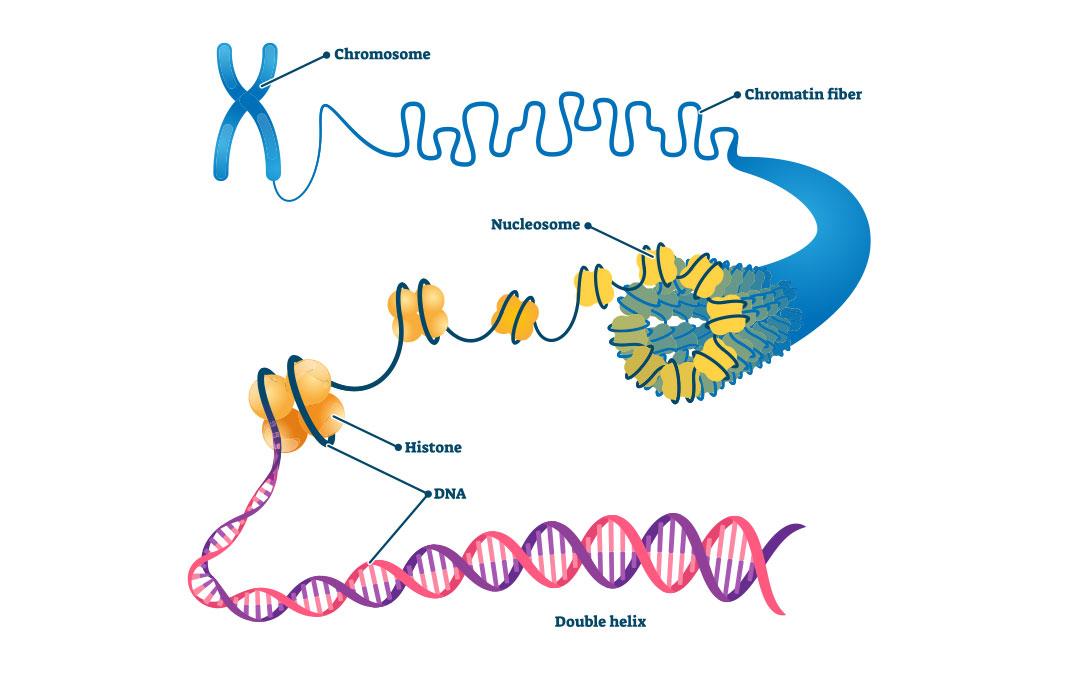Research News
FoxO-KLF15 Regulates Macronutrient Metabolism in Response to Insulin Signaling
 Image by VectorMine/Shutterstock
Image by VectorMine/Shutterstock
Researchers from the University of Tsukuba find that the insulin-FoxO-KLF15 signaling pathway regulates macronutrient metabolism in the liver
Tsukuba, Japan—We all know what it feels like to be hungry before a meal or sluggish after; and both of these feelings have to do with blood sugar levels, which are carefully regulated by dynamic systems within the body. Now, researchers from Japan have determined that a single pathway hinging on a liver-specific transcript of the gene encoding the transcription factor KLF15 regulates macronutrient metabolism in response to insulin levels to maintain this delicate balance.
In a study published this month in iScience, researchers from the University of Tsukuba have revealed that the FoxO-KLF15 axis regulates the metabolism of macronutrients in the liver in response to changes in insulin levels.
The body can use protein, sugar, and fat as energy sources, and typically these three calorie sources, known as "macronutrients," are obtained from food. However, protein can also be converted to carbohydrates, and carbohydrates can be converted to fat, within the body if needed: in a fasting state, glucose is generated by breaking down muscle protein, while after a meal extra glucose is converted to fat for storage.
"The conversion between energy forms is tightly regulated by the liver because it is unidirectional, and animals cannot convert energy forms in the reverse direction," explains Associate Professor Naoya Yahagi, the contact author for the study. "We previously showed that KLF15 plays an essential role in this process of nutritional regulation in the liver, so we wanted to investigate how KLF15 itself is regulated."
To do this, the researchers explored the structure of the Klf15 gene and factors that interact with it, in both fasting and fed states.
"The results showed that the Klf15 gene encodes multiple transcripts, one of which is expressed specifically in the liver. Furthermore, the Klf15 promoter region contains two sites that are bound by two transcriptional regulators called FoxO1 and FoxO3a to promote transcription of the gene," says Assistant Professor Yoshinori Takeuchi, the first author of the study.
Binding of these two regulators to the Klf15 promoter was dependent on nutritional status: in a fasting state, they bound to and activated transcription of Klf15, whereas in a fed state expression of Klf15 and its downstream factors was decreased. Importantly, one of these Klf15 target genes is Srebf1c, which encodes the master regulator of lipogenesis. During fasting, the FoxO-KLF15 pathway promoted the conversion of protein to carbohydrate and prevented the conversion of carbohydrate to fat. In contrast, after eating, elevated blood insulin levels induced phosphorylation of FoxOs, which shut down the FoxO-KLF15 pathway, stopping carbohydrate production and activating fat production.
"Our study shows for the first time the way in which insulin transcriptionally regulates not only glucose and lipid metabolism, but also amino acid metabolism," states Yahagi. "This means that transcriptional regulation is very important for the control of metabolic flow between all three macronutrients, which is regulated by the FoxO-KLF15 pathway."
###
This work was supported by MEXT/JSPS KAKENHI Grant Numbers
23116006 (Grant-in-Aid for Scientific Research on Innovative Areas: Crosstalk of
transcriptional control and energy pathways by hub metabolites), 15H03092
(Grant-in-Aid for Scientific Research (B)), 21591123 and 18590979 (Grant-in-Aid for
Scientific Research (C)), 26560392 and 16K13040 (Grant-in-Aid for Challenging
Exploratory Research), and 03J10558 (Grant-in-Aid for JSPS Fellows) (to N. Yahagi) as
well as 17H05060 (Grant-in-Aid for Young Scientists (A)) and 20K07272 (Grant-in-Aid
for Scientific Research (C)) (to Y. Takeuchi). It was also supported by research grants
from the Uehara Memorial Foundation, Nakatani Foundation, Japan Heart Foundation,
Kanae Foundation for the Promotion of Medical Science, Senri Life Science Foundation,
Japan Foundation for Applied Enzymology, and Okinaka Memorial Institute for Medical Research (to N. Yahagi). It was also supported by research grants from Takeda Science
Foundation, Suzuken Memorial Foundation, ONO Medical Research Foundation and
SENSHIN Medical Research Foundation (to N. Yahagi and Y. Takeuchi) as well as Banyu Life Science Foundation International, Japan Diabetes Society Junior Scientist
Development Grant supported by Novo Nordisk Pharma Ltd. and Public Trust
Cardiovascular Research Fund (to Y. Takeuchi).
Original Paper
The article, "FoxO-KLF15 pathway switches the flow of macronutrients under the control of insulin," was published in iScience at DOI: 10.1016/j.isci.2021.103446.
Correspondence
Associate Professor YAHAGI Naoya
Assistant Professor TAKEUCHI Yoshinori
Faculty of Medicine, University of Tsukuba



